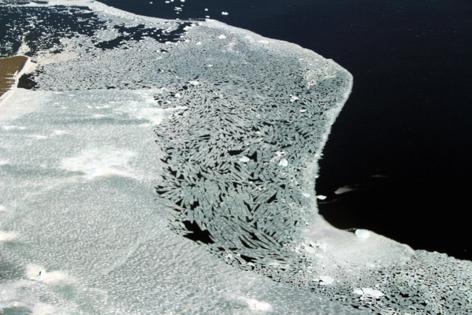NASA gives UCSD $10 million to develop ideas for using satellites to scrutinize Earth's changing climate
Published in Science & Technology News
SAN DIEGO — NASA is giving UC San Diego $10 million to develop competitive proposals for using satellites to study the often subtle and sometimes dramatic ways in which climate change is affecting Earth.
The money will be evenly split between researchers Helen Fricker and Sarah Gille, who are pursuing separate but related concepts at UC San Diego's Scripps Institution of Oceanography.
NASA also is giving $5 million each to a research concept team at the University of Washington and one at the California Institute of Technology.
The space agency will later choose the best two proposals and include them on future satellite missions, likely in the 2030-32 time frame.
UC San Diego said that Fricker, a glaciologist, is developing a proposal to use satellites to observe the three-dimensional structure of terrestrial ecosystems, including forests and the surface of glaciers, ice sheets and sea ice. She's specifically interested in changes tied to human activity.
"In the past, we've just got this sort of under-sampled view of what's happening," Fricker told The San Diego Union-Tribune. "It's like going to Texas and driving along a road and going, 'Oh, I know Texas' ... But if you have several roads across Texas, and some of them criss-cross each other, you might actually get to know Texas."
Gille, a physical oceanographer, is working on a proposal that UC San Diego said would measure ocean surface currents globally for the first time, and simultaneously measure winds over the ocean.
Such tracking "will be a game-changer in understanding how the ocean and the atmosphere exchange gases, heat and energy, which is one of the greatest challenges in climate science," Gille said in a statement.
-------
©2024 The San Diego Union-Tribune. Visit sandiegouniontribune.com. Distributed by Tribune Content Agency, LLC.







Comments